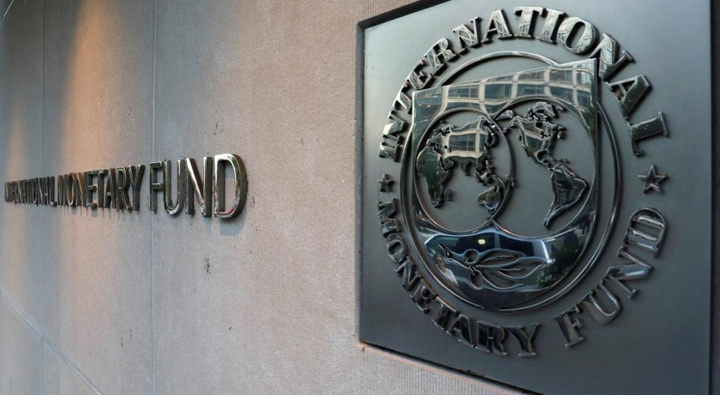Nigeria’s 2025 Fiscal Outlook: A Looming Crisis?
Nigeria’s fiscal prospects for 2025 are facing significant challenges, according to the International Monetary Fund (IMF). The IMF’s Article IV consultation report paints a concerning picture, highlighting the risk of the country exceeding its fiscal deficit projections due to falling oil prices, lower production levels, and difficulties in executing capital expenditure projects. The report emphasizes the urgent need for Nigeria to revise its budget targets and recalibrate its fiscal policies to align with the prevailing economic realities. The IMF warns that without prompt action, Nigeria risks a deepening financial crisis. The core of the issue lies in the discrepancy between the optimistic assumptions underpinning the 2025 budget, particularly regarding hydrocarbon revenues, and the current global economic downturn impacting oil prices.
The IMF’s analysis reveals that Nigeria’s fiscal deficit could reach 4.7% of its GDP in 2025, considerably higher than the budgeted target. This stark projection underscores the urgency of revising the fiscal plan. The report notes that the 2025 budget, formulated on optimistic hydrocarbon revenue projections, is now under significant strain due to the global decline in oil prices and ongoing uncertainty in the oil sector. This disconnect between initial revenue assumptions and the current economic climate poses a substantial threat to Nigeria’s fiscal stability. The IMF also raises concerns about the implementation of capital expenditure, a crucial aspect of the budget. Despite ambitious spending plans, Nigeria’s historical challenges in executing large-scale infrastructure projects suggest that meeting capital expenditure targets will be difficult. This potential shortfall in capital expenditure could further exacerbate the fiscal challenges and hinder crucial infrastructure development.
Given these developments, the IMF strongly advises the Nigerian government to take immediate steps to adjust its fiscal policies and revise the 2025 budget. While the authorities have indicated their intention to adjust the budget to account for lower oil prices and pursue higher hydrocarbon production and revenue mobilization efforts, the absence of a formally revised budget with updated fiscal targets leaves the country vulnerable to escalating economic instability. The IMF recommends a neutral fiscal stance for 2025 to maintain macroeconomic stability and protect growth-enhancing investments. The institution also stresses the importance of bolstering social support for vulnerable households, given Nigeria’s rising poverty levels and food insecurity, urging the government to expand social safety nets to mitigate the impact of economic hardship on the most vulnerable segments of the population.
Crucially, the IMF emphasizes the need for Nigeria to diversify its revenue base away from its dependence on oil. The report calls for broadening the tax base and strengthening revenue mobilization efforts, urging the government to continue its tax reform agenda, including modernizing the value-added tax and corporate income tax systems. However, the IMF acknowledges that these reforms will require time to yield significant results. While the IMF’s report presents a concerning outlook, Nigerian authorities have expressed their commitment to recalibrating the 2025 budget and implementing necessary adjustments to address the fiscal challenges. The government maintains confidence in its ability to offset lower oil prices through increased production and in-year adjustments, emphasizing its commitment to utilizing savings from fuel subsidy removal, domestic revenue mobilization, and exploring alternative financing sources like public-private partnerships.
The IMF report also underscores the importance of managing Nigeria’s growing sovereign debt, which increased to 53% of GDP in 2024, largely due to the fiscal deficit and exchange rate depreciation. The IMF cautions that without fiscal reforms, the debt burden will continue to grow, adding further pressure on public finances. The report suggests exploring alternative financing options, such as public-private partnerships and pre-export financing, to reduce reliance on external borrowing, while emphasizing the need for careful management of new financing arrangements to avoid aggravating debt vulnerabilities. In addition to addressing the fiscal deficit and debt management, the IMF also highlights the need for improved capital expenditure management and prioritization of investments with high economic returns, recommending a focus on projects crucial for long-term growth and job creation. The report also stresses the importance of enhanced public investment management and accurate fiscal data, encouraging more accurate fiscal forecasting for the 2026 budget to enable effective prioritization of initiatives.
Despite the concerns raised, the IMF acknowledges Nigeria’s significant economic reforms, commending progress in macroeconomic stability and resilience over the past two years. The report praises the Central Bank of Nigeria’s tight monetary policy to combat inflation and welcomes reforms aimed at strengthening the banking system, enhancing financial inclusion, and promoting capital market growth. The IMF also notes improvements in the foreign exchange market, including the stabilization of the naira and a reduction in inflation. While acknowledging these positive developments, the IMF cautions that challenges remain and emphasizes the need for continued reforms to ensure long-term growth, poverty reduction, and resilience against global uncertainties. The Nigerian government has reaffirmed its commitment to economic stability, emphasizing its proactive approach to mitigating risks stemming from global economic uncertainties, such as oil price fluctuations and market volatility. The government stresses its focus on implementing the 2025 budget while safeguarding reform gains, ensuring economic stability, and monitoring developments in the international oil market and global trade environment to mitigate potential risks and maintain progress towards inclusive growth.
Finally, it’s important to note the differing perspectives on the 2025 budget. While the World Bank has described the budget as overly ambitious, warning of potential reliance on the Central Bank of Nigeria’s Ways and Means facility to finance revenue shortfalls, the Minister of Budget and Economic Planning maintains that the projections are modest and aligned with Nigeria’s growth capacity, arguing that budgets should be aspirational rather than constrained by present challenges. This divergence of opinion underscores the complex and evolving nature of Nigeria’s fiscal landscape in 2025. The government’s ability to navigate these challenges and implement the necessary reforms will be crucial in determining the country’s economic trajectory in the coming years.


